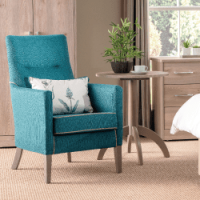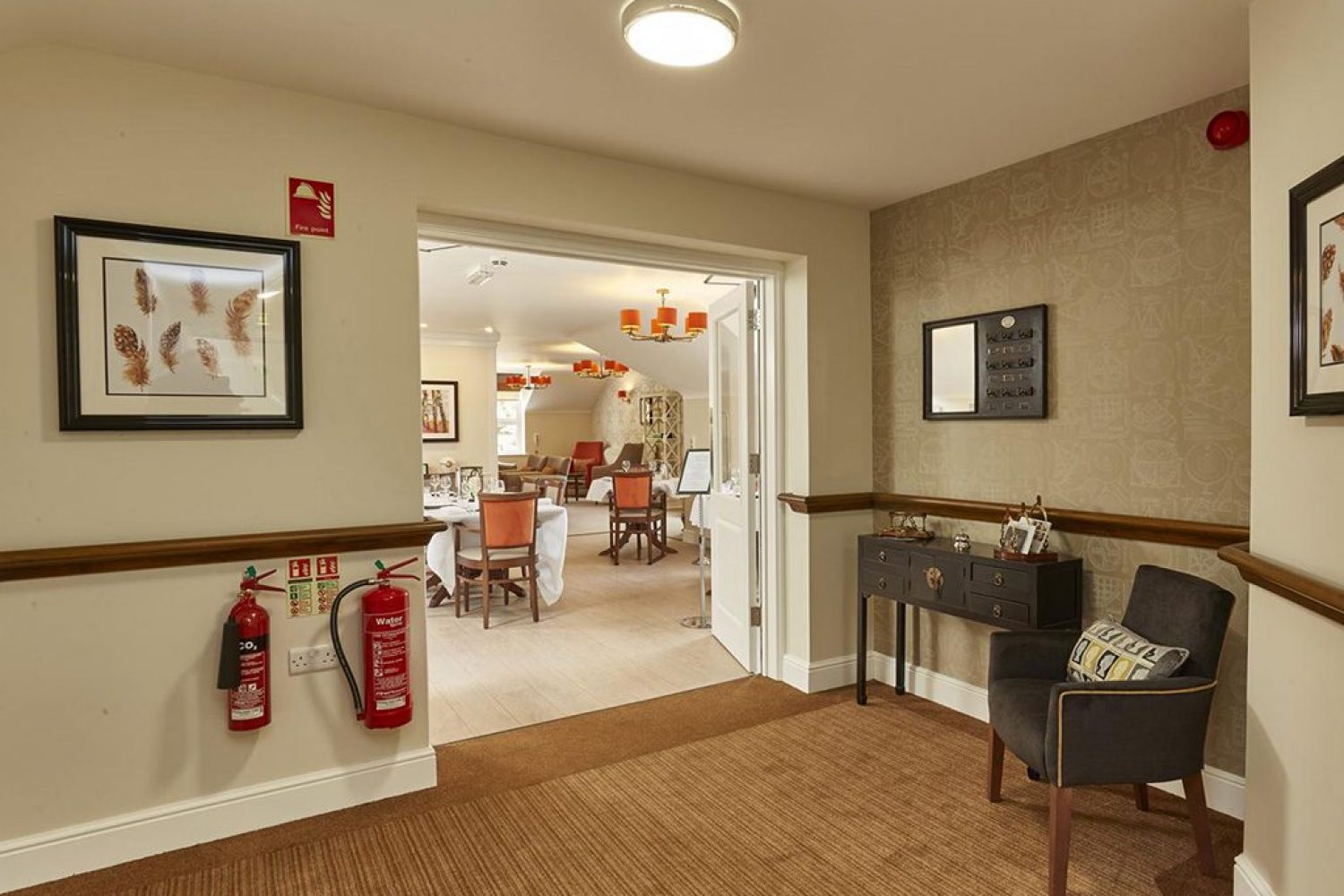- Article
- Jordan Cantley
As we look forward to the rest of the year and autumn and winter, we’ve put together 4 key design trends for care home interiors that we think we’ll see in the
A premium collection of complete room packages designed from the ground up specifically for nursing and care homes.

A premium collection of complete room packages designed from the ground up specifically for nursing and care homes.


It can often be confusing when furnishing a care home to decide which regulations apply and how you can ensure that your purchases are of the right standard for your home. With a heavy weight of responsibility for the safety of residents and staff within your home, it is important that you understand the regulations surrounding fire retardancy when purchasing care home furniture and furnishings. In this blog we explain the regulations you need to consider and what to look out for.
Firstly, fire retardancy regulations are split into two categories; those that apply to domestic dwellings, and those that apply to commercial premises. In general, domestic regulations apply when a building is used as a residential address. However, whilst care homes are a residence, they are governed by commercial fire retardancy regulations and therefore any furniture and furnishings have to pass a higher standard of fire retardancy. Care homes pose a unique set of risks covering the speed and ability to evacuate as well as the increased number of electrical devices and possible sources of ignition, so it is necessary to take extra steps to safeguard those under their care.
Within a care home, either the owner and/or the designated responsible person are responsible for ensuring that the home complies with FR regulations. Therefore, whilst for domestic dwellings the onus is on the furniture or fabric manufacturer, within a care home or commercial premises the responsible person must make sure that regulations are complied with, this also includes completing a full fire risk assessment amongst other things. For care homes, you must comply with The Regulatory Reform (Fire Safety) Order 2005 (RRFSO), for which full details can be found here. FR regulations state that items must be cigarette and match resistant as well as Crib 5.
When purchasing furniture and furnishings you should check they comply to the following British Standards:
Whilst the risk of fire in a care home is understandably a very real fear, there are simple ways that you can mitigate the risk and create a safer environment for both residents and staff. As a commercial supplier to the care home sector we take our responsibility to confirm to regulations seriously, and we ensure that all of our care home furniture, curtains and soft furnishings uphold the relevant BS standard. If you’d like to discuss your care home furniture, give our helpful team a call on 01603 664900 or email sales@furncare.co.uk
Donate to the Care Workers Charity and make a difference.
| Cookie | Duration | Description |
|---|---|---|
| cookielawinfo-checkbox-analytics | 11 months | This cookie is set by GDPR Cookie Consent plugin. The cookie is used to store the user consent for the cookies in the category "Analytics". |
| cookielawinfo-checkbox-functional | 11 months | The cookie is set by GDPR cookie consent to record the user consent for the cookies in the category "Functional". |
| cookielawinfo-checkbox-necessary | 11 months | This cookie is set by GDPR Cookie Consent plugin. The cookies is used to store the user consent for the cookies in the category "Necessary". |
| cookielawinfo-checkbox-others | 11 months | This cookie is set by GDPR Cookie Consent plugin. The cookie is used to store the user consent for the cookies in the category "Other. |
| cookielawinfo-checkbox-performance | 11 months | This cookie is set by GDPR Cookie Consent plugin. The cookie is used to store the user consent for the cookies in the category "Performance". |
| viewed_cookie_policy | 11 months | The cookie is set by the GDPR Cookie Consent plugin and is used to store whether or not user has consented to the use of cookies. It does not store any personal data. |